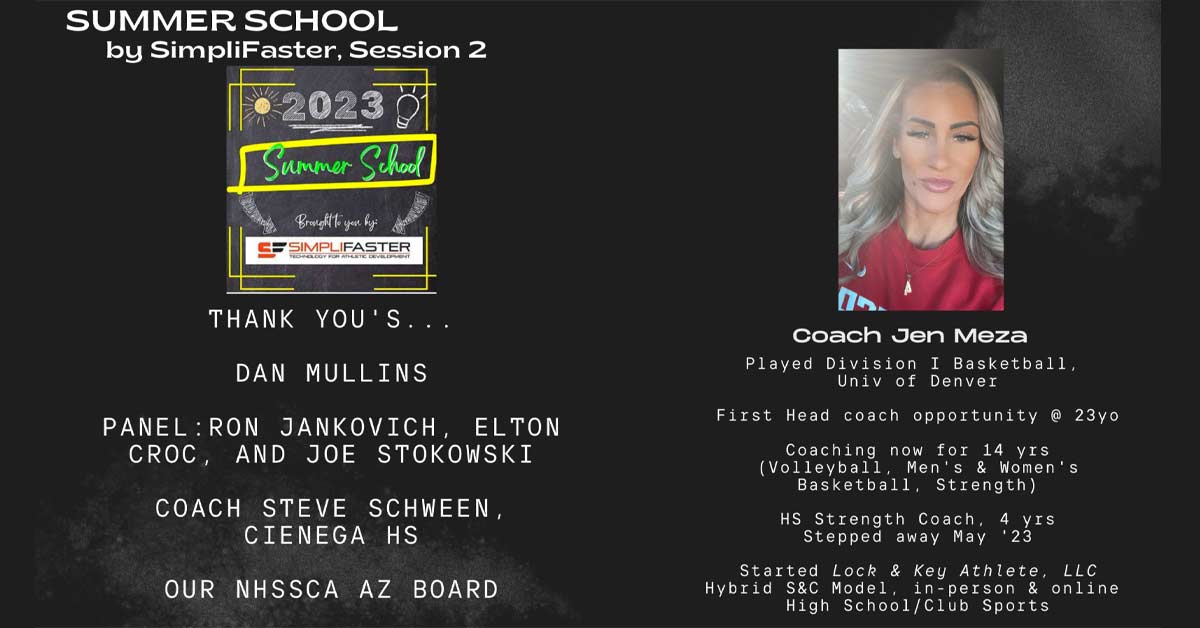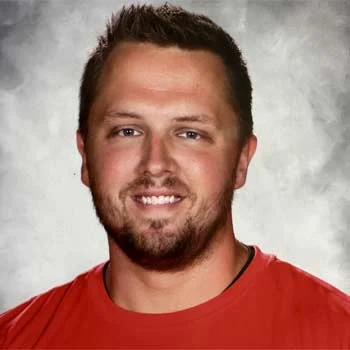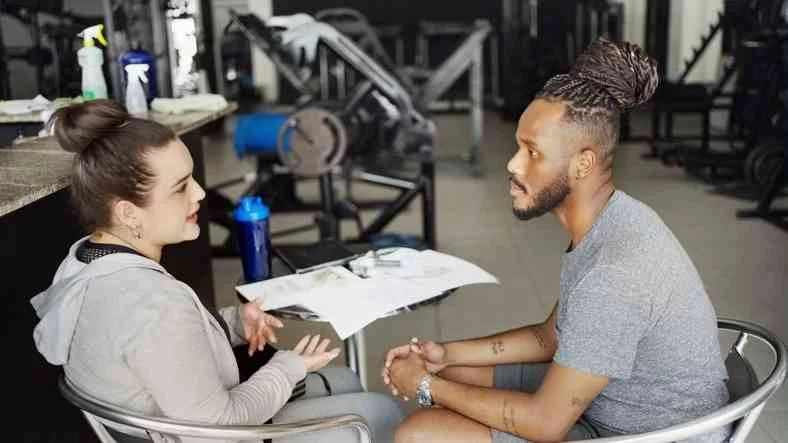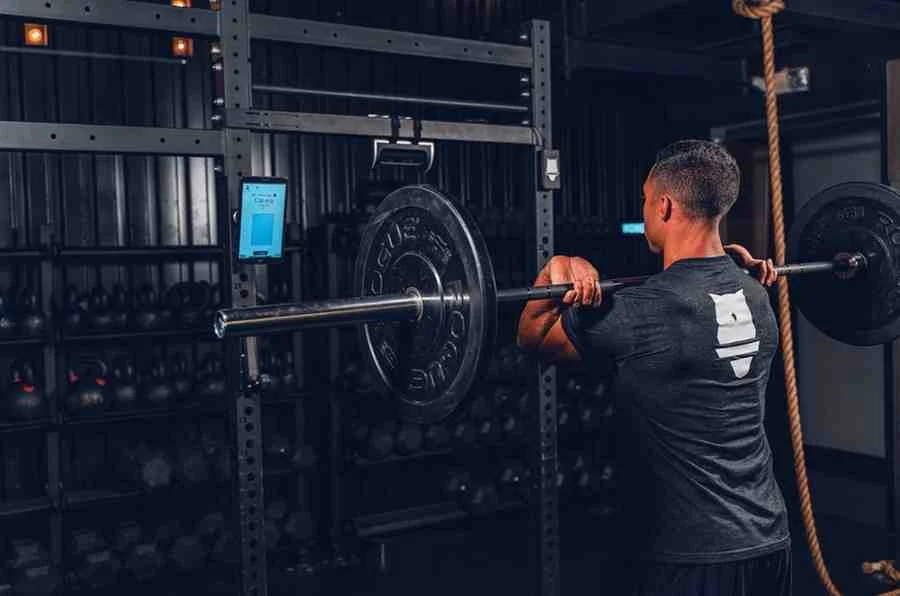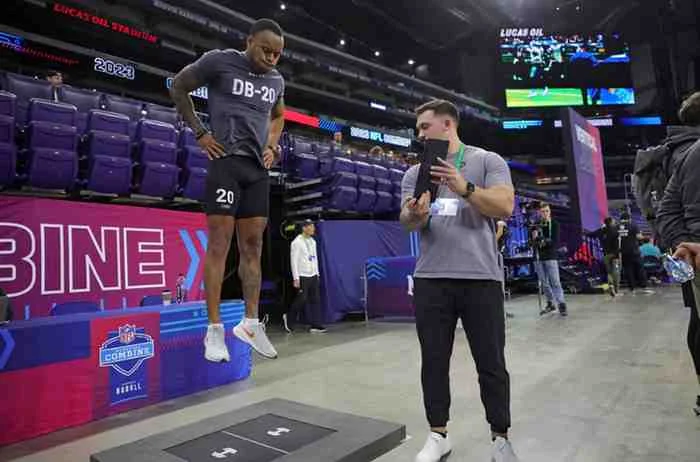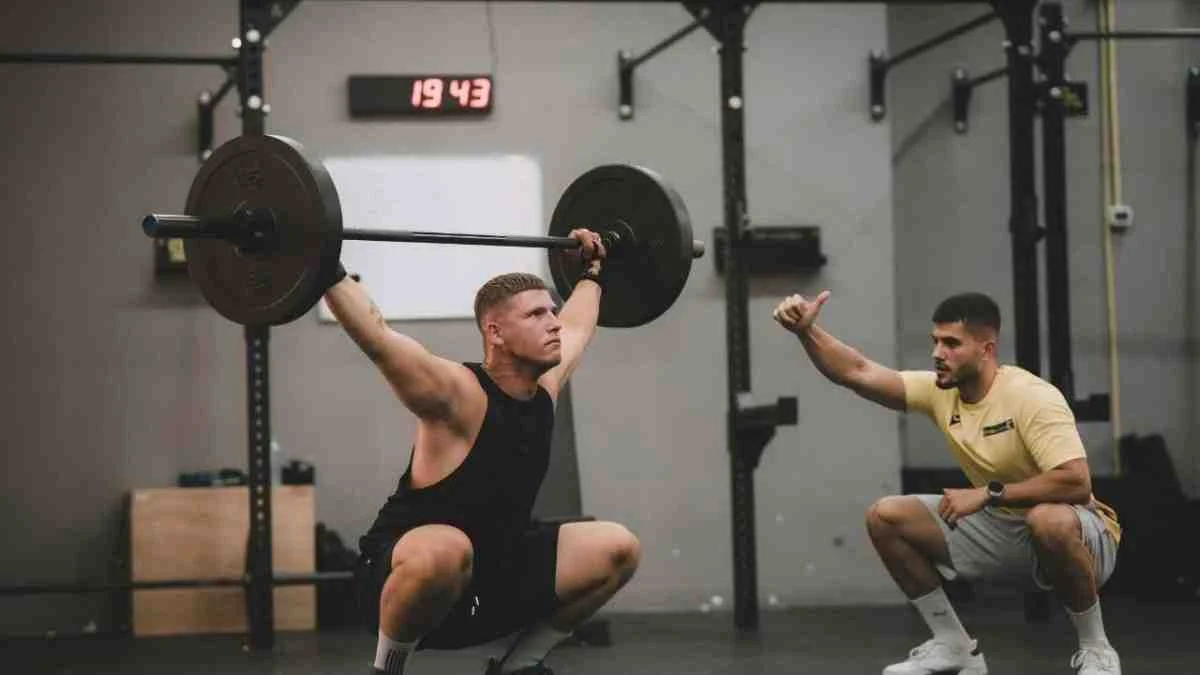Coaching can sometimes feel like a whirlwind. We do our best to prepare our athletes for competition, we balance the expectations of coaches, parents, administration, players, and everyone else that believes they can do our job better than we do our job. It is easy to lose sight of the potentially life-changing effects we can have on students.
In Session 2 of Summer School, coach Jen Meza, owner of Lock & Key Fitness, delivers several profound lessons regarding our ability to impact our players in a very short amount of time because, in her words, “our story feeds our philosophy.” Each of us took a unique path to where we are today—some may be similar, but each of us had coaches who left either a positive or negative impact on our lives. Coach Meza shares a story that is becoming increasingly common in sports: a coach or multiple coaches who push athletes to despise the sport they once loved. Despite that background, Meza returned to athletics to build positive relationships and help to ensure that young athletes do not have the same experience she had.
We also talk training; specifically, cluster sets, intra-lift mobility, and methods of improving time efficiency. But we are more than volumes, intensities, and velocity ranges: “It’s everything else…”
Everything else is a broad description of running your own program, but this session details three specific approaches to building a successful performance culture:
- How to build relationships.
- How to teach winning.
- How to coach the coaches in your program.
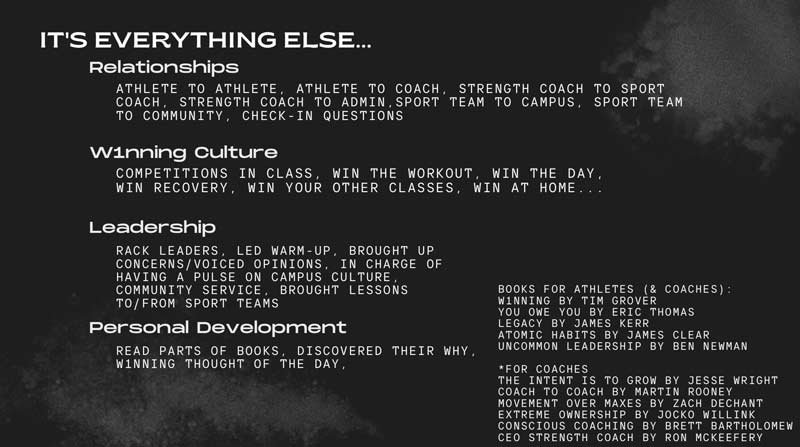
1. Relationships Beyond the Athlete/S&C Relationship
Developing relationship skills with our athletes that go beyond the stereotypical ‘coach speak’ is crucial for building athlete maturity. Teaching athletes the value of athlete-to-athlete, athlete-to-coach, and athlete-to-parent relationships and the communication styles required to be successful for each can not only solve communication headaches, but also unlock teammate communication.
Teaching athletes the value of communication skills begins with completing daily check-ins. This requires athletes to honestly evaluate their efforts regarding their commitment to their performance goals. Without teaching proper self-reflection of their own healthy habits, we as coaches cannot expect our athletes to properly process the words and actions of others.
Without teaching proper self-reflection of their own healthy habits, we as coaches cannot expect our athletes to properly process the words and actions of others. Share on X2. Coaching How to Win
Winning begins with language. Winners think—and therefore speak—differently. Coach Meza talks about how she implemented winning language when she asks athletes, “How did you win at ___(that set, that drill, that rep).” This required athletes to identify and verbalize what made their actions successful.
Another example is the “winning thought of the day”: she writes a quote, an example, or words of encouragement on the whiteboard for the athletes to read relating to sport psychology or a general approach to life and training.
3. Coaching the Coaches
For most of us in the high school and middle school setting, we generally work as the only “qualified” individuals in our weight room. This can make coaching large sessions difficult, but coaching our coaches on what we look for in terms of diagnosing good reps and bad reps and, more importantly, identifying the causes of the breakdowns can be a vital piece to increase the productivity of the S&C coach.
As someone who works both in person and remotely, Coach Meza is forced to coach the coaches in her short time with the programs she trains and must provide continuous coaching and support virtually.
An All-Too-Common Experience
While detailing her background, Coach Meza referenced an experience that I am hearing more frequently—discussing her program and the future at her previous school, she was told that the administration supported the head football coach because they did not want a female running the weight room for football. This position, at least for football, must be run by a male coach. The unfortunate part is that Coach Meza had data to validate her experience coaching all athletics. She delivered athletes that fit the vision of the football coach in prior seasons.
What measurables must a female coach produce to prove that she can run the weight room for football? With the prevalence of male coaches who run antiquated programs incapable of adopting athletic training models that fit the modern game, why is a female coach unsuitable to run the weight room for football? I have talked to many female coaches who are equally qualified—and in many cases, more qualified—to run a weight room than I am. Yet, because I am a 6’2″, 275 lb man, people assume I know better how to prepare football players for competition. I don’t know the answers here, nor do I claim to be an expert on this issue, but I know one thing: Coach Meza can coach circles around plenty of male coaches, but was told she cannot run the weight room for football due to her gender. Maybe we must teach our adolescent male athletes to respect coaches in order to have the ability to be coached by an excellent performance coach who happens to be a female.
Video 1. This week’s full summer school session with Coach Jen Meza.
Panel Q&A
Each session includes a panel of three coaches who bring expert experiences from different angles. After the presenter explains their program, the panel asks questions and provides feedback based on the constraints of the presenter’s program.
This segment aims to add depth to the conversation, push into the thought process behind the programming decisions, and give insight to listeners in the refinement process. This week’s panel consisted of Elton Crochran from Veterans Memorial HS in San Antonio, Texas; Ronnie Jankovich from Roswell HS in Roswell, Georgia; and Joe Stokowski from Grayson HS in Loganville, Georgia.
Coach Croc
Coach delivered some absolute heat, depicting an entire setup of a session that he would do, including time constraints for each segment! This gives viewers an idea of how to incorporate warm-up, sprinting, strength, plyo, mobility, stability, and competition in a matter of 36 minutes. Coach even gave an excellent idea to solve a pogo jump issue by simply using an ancient piece of technology: the jump rope.
Coach Jankovich
When we are outnumbered in the weight room, making it impossible to see every rep, Janko delivered the excellent suggestion of utilizing tablets to record a set every day, and the student must upload the video for analysis via Google classroom. If you do not have iPads/tablets, the rack leader can record all sets on their phone and be responsible for submitting the entire rack’s ‘homework.’
Use tablets to record a set every day, and the student must upload the video for analysis via Google classroom. If you do not have iPads/tablets, the rack leader can record on their phone and submit the entire rack’s ‘homework.’ Share on XCoach Stokowski
While it may be easy for most of us to identify an “incredibly good” or “incredibly bad” rep, our coaches and athletes may not know the difference. Teaching our athletes and sport coaches to understand the difference and equipping them with the tools to identify the breakdown in each rep can empower our teams to correct each other. This will build leadership and exponentially increase the number of coaching eyes in the room.
Looking Ahead to Session 3
Be sure to complete this Google Form to receive the link for Session 3. Links will be sent out Sunday evening, 6/18. Session 3 will feature Coach Demarco Henry on Tuesday, June 20, at 8:00p.m. EST. Coach Henry is the strength and conditioning coach at Lawrenceburg High School in Lawrenceburg, Indiana, which consistently competes for titles across a range of sports and produces multiple collegiate athletes year in and year out. This session will give you a look behind the curtain of one of the best coaches in the Midwest!
Supplemental Resources
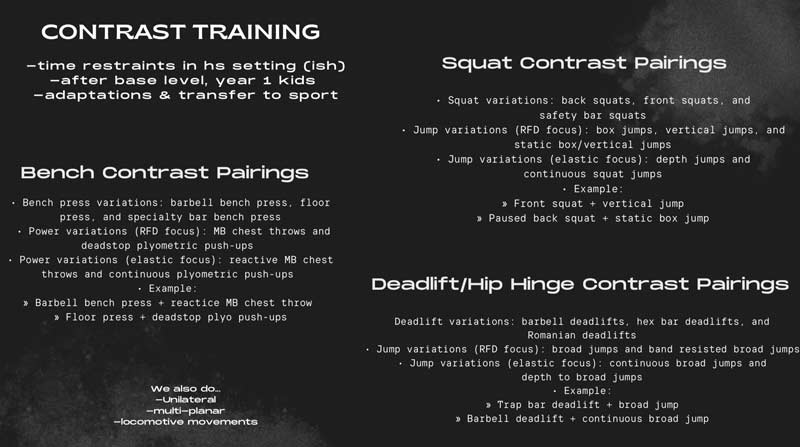
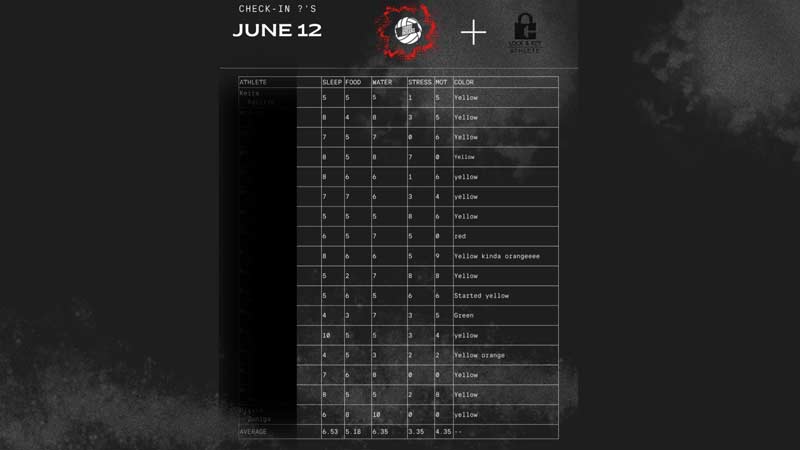
Since you’re here…
…we have a small favor to ask. More people are reading SimpliFaster than ever, and each week we bring you compelling content from coaches, sport scientists, and physiotherapists who are devoted to building better athletes. Please take a moment to share the articles on social media, engage the authors with questions and comments below, and link to articles when appropriate if you have a blog or participate on forums of related topics. — SF

